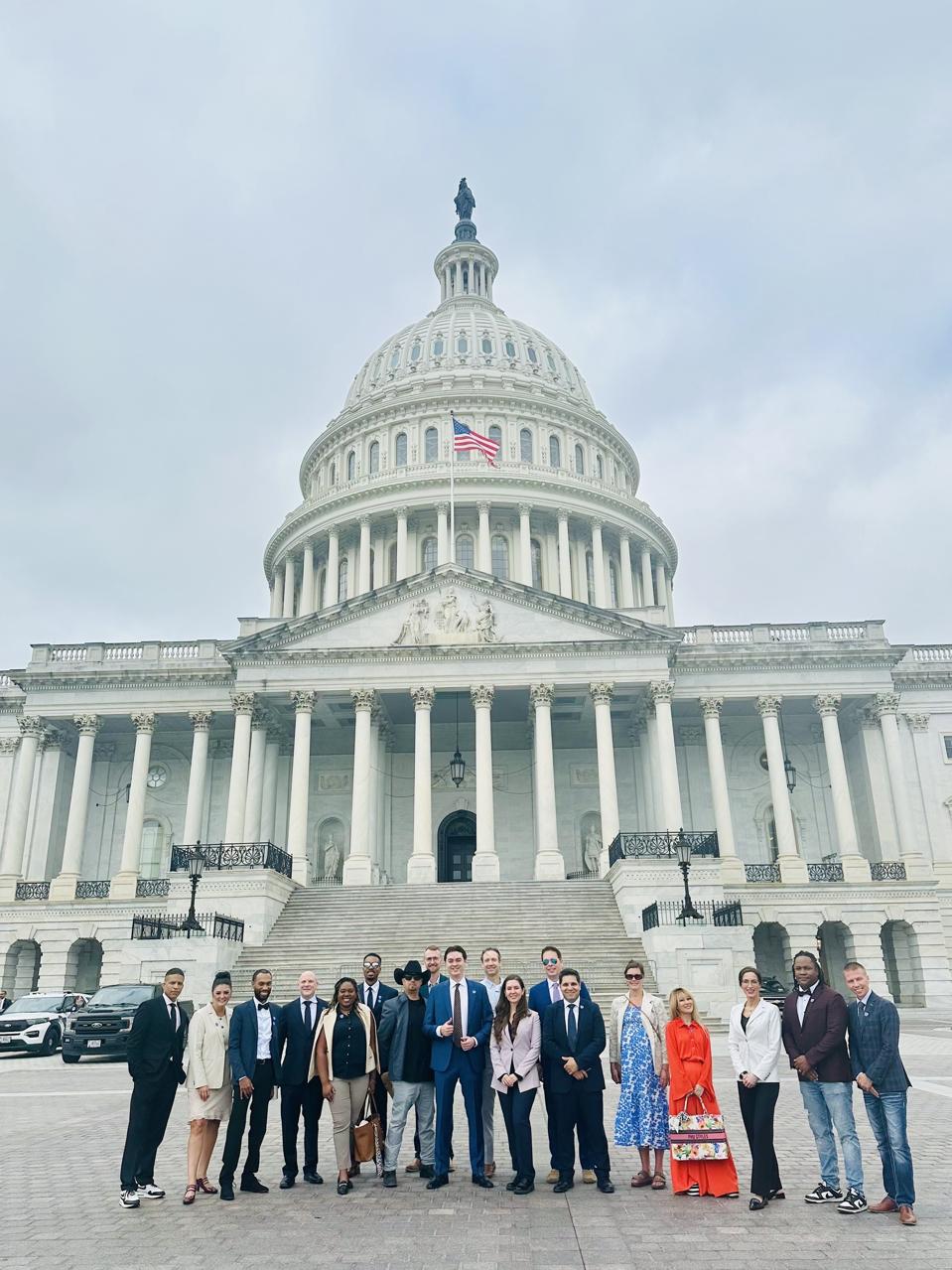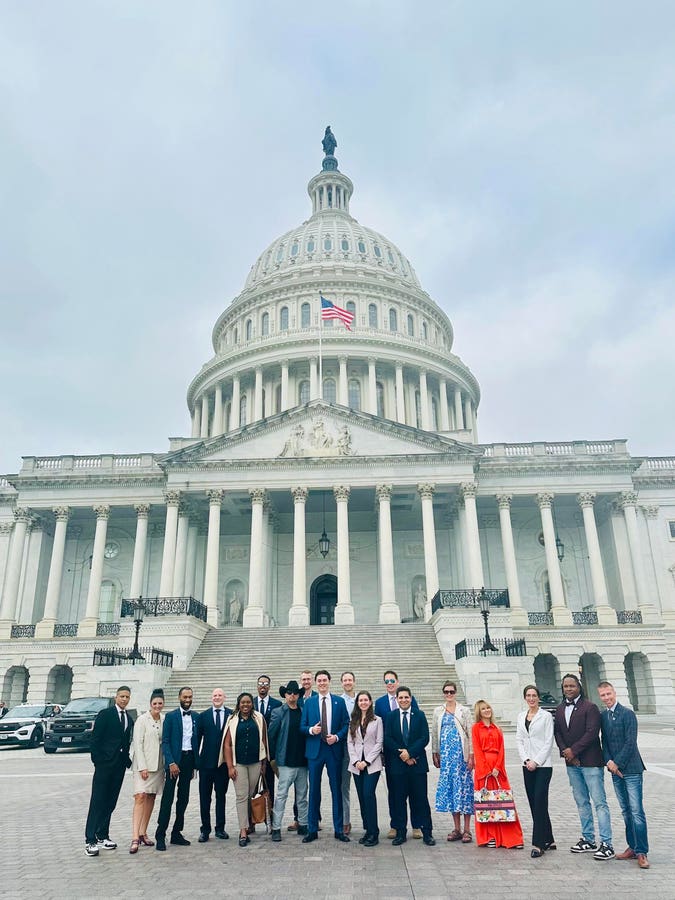Recent U.S. legislative efforts—the GENIUS Act, CLARITY Act, and Anti‑CBDC Surveillance State Act—are redefining the regulatory environment for Web3 technologies, with significant implications for blockchain-powered healthcare innovation.
This past week Stand With Crypto a major advocacy movement launched by Coinbase aimed at mobilizing crypto users and developers to shape U.S. legislation around digital assets, convened Web3 Founders from around the country. Over a dozen founders representing industries from retail, education and healthcare, lobbied lawmakers on Capitol Hill for clear, innovation-friendly crypto regulation and to advocate for bills like CLARITY, the GENIUS Act, and protections against CBDC overreach.
Addressing healthcare crypto opened minds to broader issues in the healthcare system—shifting the focus from purely financial use cases to critical topics like data ownership, access, health equity, and patient empowerment.

2025 Stand With Crypto Web3 Founders Lobby on Capitol Hill
Stand With Crypto
GENIUS Act: Enabling Stablecoin Use in Health Ecosystems
The GENIUS Act (Guiding and Establishing National Innovation for U.S. Stablecoins) passed the Senate with bipartisan margin (68–30), establishing a federal framework for stablecoins. It mandates 1:1 reserve backing in cash/Treasuries, monthly audits, and robust AML controls (Congress.Gov).
Why it matters for healthcare Web3:
Stablecoins can power tokenized incentive systems for patient engagement (e.g., rewarding medication adherence or healthy behaviors).
Regulatory clarity boosts institutional confidence for blockchain healthcare pilots with healthcare stakeholders (ieL employers, payors, and public health organizations).
Compliance infrastructure aligns with HIPAA/AML, supporting secure, auditable financial flows in patient programs.
2. CLARITY Act: Classifying Digital Assets for Health Use Cases
The CLARITY Act (H.R.3633) clarifies classification of “digital commodities,” placing them under the Commodity Futures Trading Commission (CFTC) unless recognized as decentralized securities (Konstantin Kalinin).
Impact on healthcare Web3:
Tokens used for health rewards or data transactions may qualify as digital commodities—not securities—reducing regulatory friction and enabling simpler deployment.
A clear framework reduces legal overhead for healthcare providers exploring health data marketplaces or wellness tokenization.
Aligning with regulatory certainty encourages innovation in smart contracts for claim adjudication, reimbursement, and care coordination.
3. Anti‑CBDC Act: Protecting Patient Privacy & Data Autonomy
The Anti‑CBDC Surveillance State Act, passed in committee, restricts rollout of central bank digital currencies (CBDCs) that could threaten user anonymity (Emmer.House.Gov)
Relevance to healthcare Web3:
Reinforces public trust by limiting surveillance—crucial for sensitive patient data flows.
Helps patients feel secure using decentralized wallets for medical records and incentives.
Strengthens the case for self-sovereign identity and decentralized health record models based on blockchain, limiting government interference.
These three policy vectors together:
Provide stablecoin clarity, enabling tokenized health incentive systems and cross-border micropayments.
Clarify that health-related tokens are digital commodities, not securities, reducing compliance headaches.
Protect privacy rights, essential for sensitive health data exchange and patient trust.
With a supportive policy environment, Web3 healthcare projects—like decentralized health wallets, tokenized behavioral rewards, or interoperable EHR sharing—can scale responsibly and ethically (Webisoft). This emerging legislative clarity marks a pivotal moment. Web3 healthcare startups are now better positioned to launch compliant, scalable, and impactful solutions—ushering in a new era of empowered, patient-first health systems.
Disclosure: I am the founder of a blockchain/crypto startup dedicated to protecting healthcare data.

